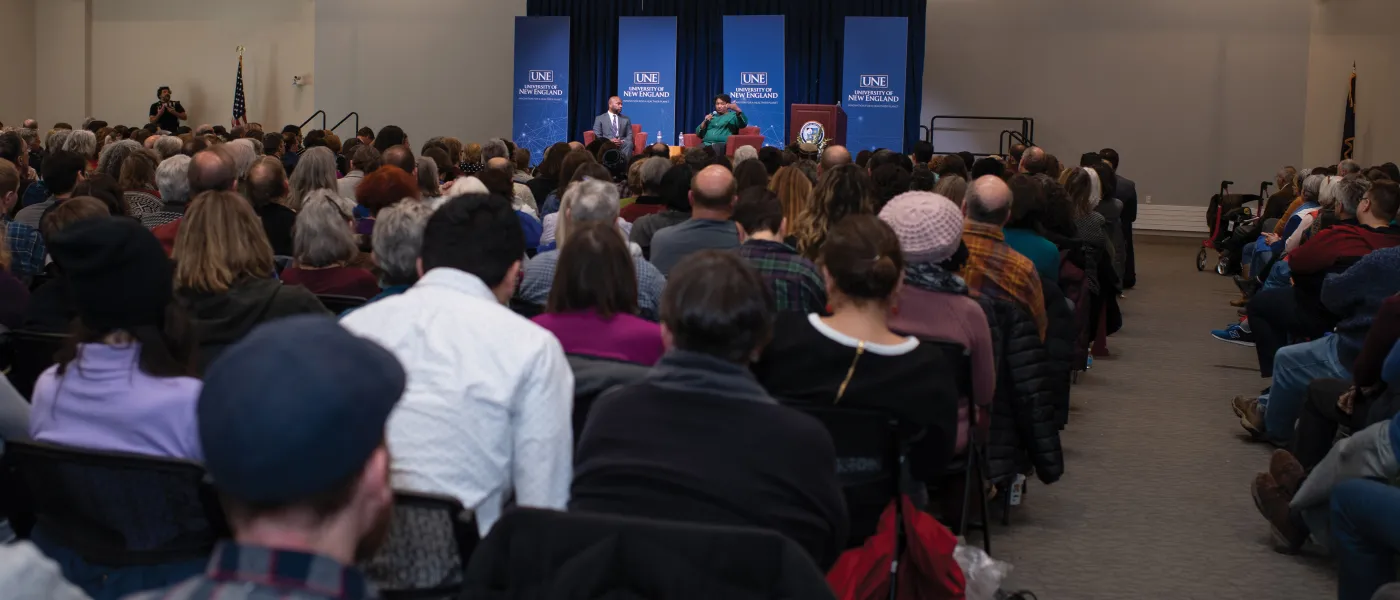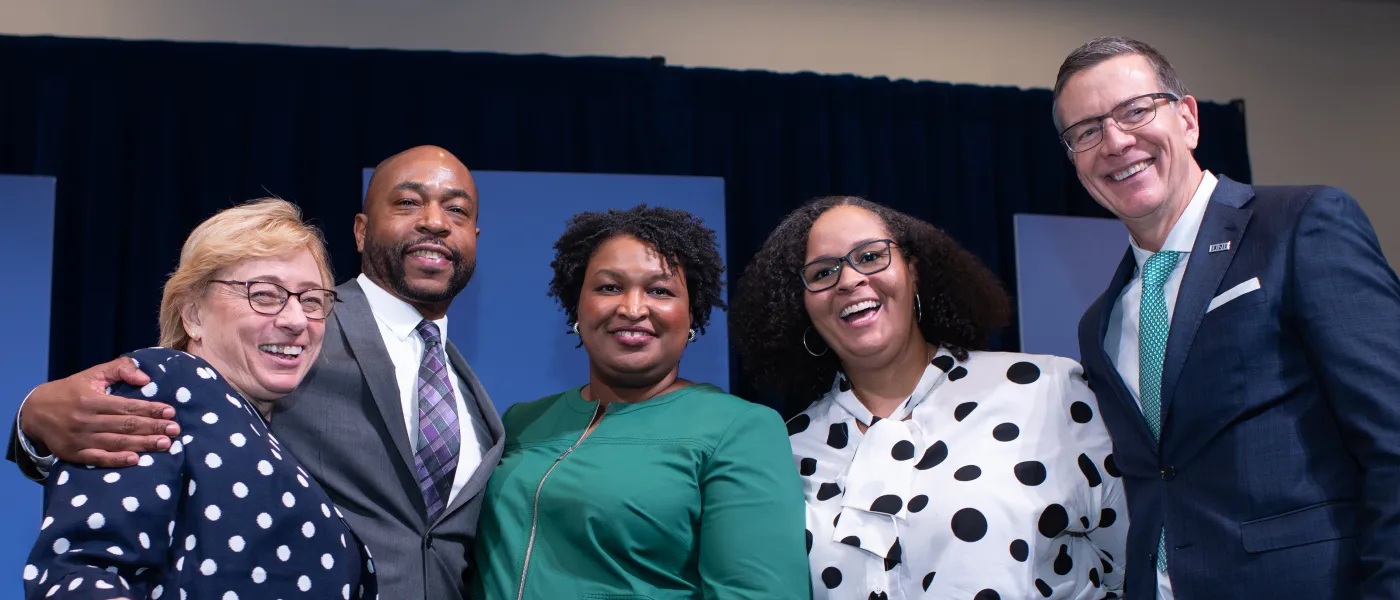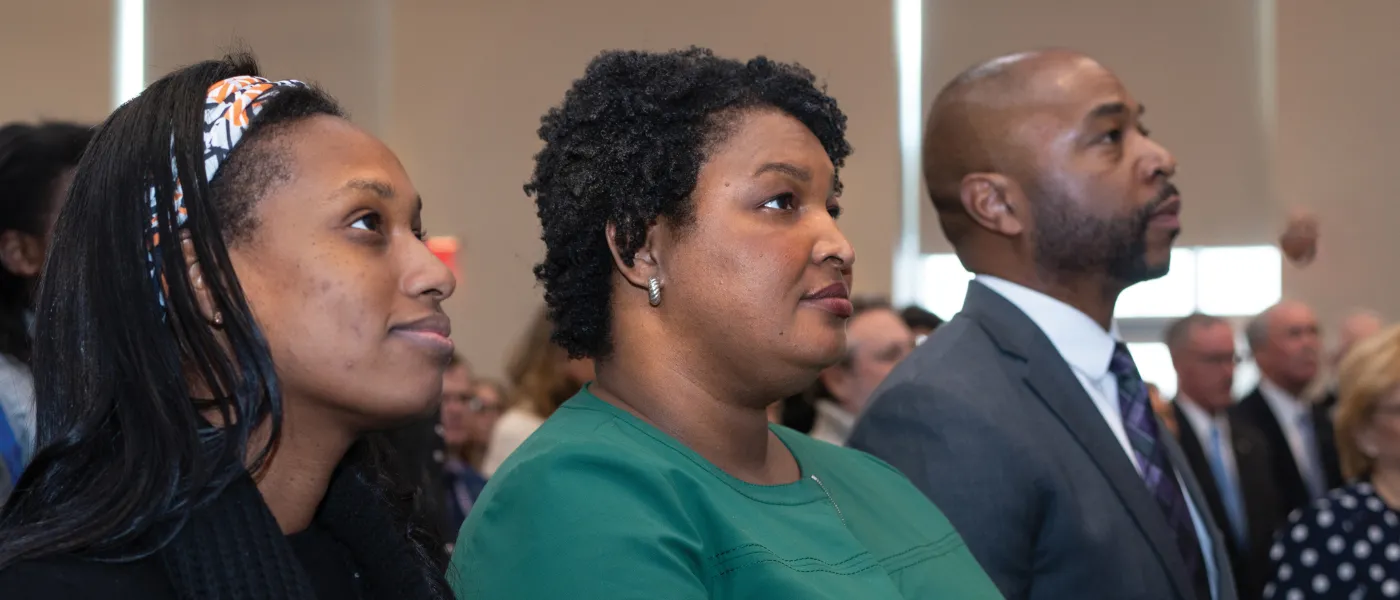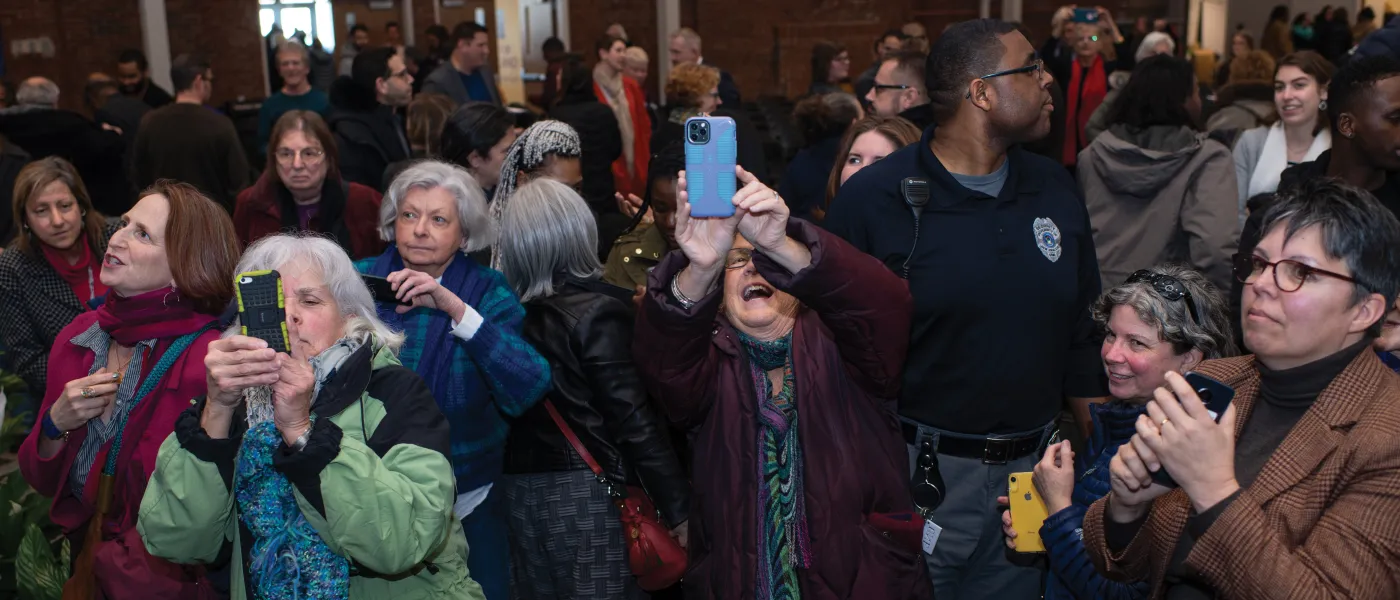“Here’s what voter suppression does,” Stacey Abrams explained to a standing-room-only crowd of over 900 people at Innovation Hall on UNE’s Portland Campus on January 22, 2020.
It’s three things: it’s can you register and stay on the rolls?; can you access your ballot?; and does your ballot count?”
Abrams, the former Georgia House Democratic leader and former Democratic nominee for governor of Georgia, was the guest speaker for UNE’s annual Martin Luther King Jr. Celebration, addressing a mesmerized audience of students, faculty, professional staff, members of the public, and distinguished guests — including Maine Governor Janet Mills and former state legislator Gerald Talbot, also a former UNE trustee.
UNE President James Herbert offered the event’s opening remarks before introducing the event’s organizer Erica Rousseau, UNE’s director of intercultural student engagement. Rousseau, in turn, had the honor of introducing Abrams and Dr. Theodore R. Johnson — a senior fellow at the Brennan Center for Justice and author of the forthcoming book When the Stars Begin to Fall — who served as the event’s moderator.
The logistics involved in bringing hot-ticket speakers to campus are always dauntingly complex, and the Abrams camp was especially strict in its requirements because of Abrams’ status as an active political candidate (and, through most of the summer, as a contender on the short list of legitimate Democratic vice-presidential candidates).
But Rousseau took all those daunting logistical demands in stride.
Her concern was focused elsewhere. “All I was thinking about was the learning outcome,” she recalls. “I needed someone to walk us through: What is voter suppression?”
“The issue of voter suppression is something that a lot of people here in Maine and New England aren’t aware of because voting in Maine is relatively easy,” continues Rousseau. “They don’t know the tactics that are used, particularly in the South, to keep poor and Black people from exercising their Constitutional right to vote.”




In the run-up to the 2020 presidential election, the issue of voter suppression has stepped out of the shadows and onto the front pages, with polling places shutting down, questions raised about the safety of in-person voting during a pandemic, and doubts cast from certain quarters about the legitimacy of mail-in ballots. The selection of Abrams as UNE’s MLK speaker could not have been timelier.
Abrams’ talk drew on her experience as the first Black woman to earn a gubernatorial nomination for a major party, when, in 2018, she came within just 50,000 votes of beating Brian Kemp, Georgia’s Secretary of State, amidst allegations of rampant racially motivated voter suppression. As Georgia’s Secretary of State, Kemp was the very person responsible for overseeing the state’s election process. Abrams dryly observed: “It’s like the New England Patriots letting Tom Brady be the referee.”
Abrams discussed the frustrations she faced when, in the final three weeks leading up to Election Day, 30,000 phone calls poured into her campaign — the first campaign to have a fulltime voter protection team — to report incidents of voter suppression. When all was said and done, a total of 80,000 calls about voter suppression activities had been fielded by her campaign.
Abrams acknowledged a brief period of mourning over the loss of the race but said that she soon channeled her disappointment in a positive direction. “I didn’t have the luxury of just walking away or curling into the fetal position. My job was to think about what else I could do. So Fair Fight became the mission.” Fair Fight 2020 is a multi-state voter protection initiative, which combats voter suppression through litigation, legislation, and advocacy measures.
“Voting is one of the most powerful tools we have as Americans,” says Rousseau, who grew up in North Carolina and has worked to combat voter suppression since she was teenager. “We have a responsibility to research, elect, and hold our representatives accountable. I’ve registered over 2,000 voters since the age of 18. I run ‘voter vans’ during every presidential election. I’ve knocked on doors in disenfranchised neighborhoods to encourage registration.”
The idea that our right to vote is something we can never take for granted may carry more weight in Black communities and among other historically disenfranchised groups than it does in middle- or upper-class White communities where voting is seemingly routine.
“Voting is something that my elders and ancestors struggled and died for,” says Rousseau.
We deserve sound leadership. It’s not about party lines for me. Politics is not a sporting event. It’s not about if your team won. It’s about access, income, health care, and being free. That’s why bringing Stacey Abrams to UNE was deeply personal to me: to inspire others to be counted, for their voices to be heard, and for the racist tactics to suppress their votes to be exposed and made just.”
